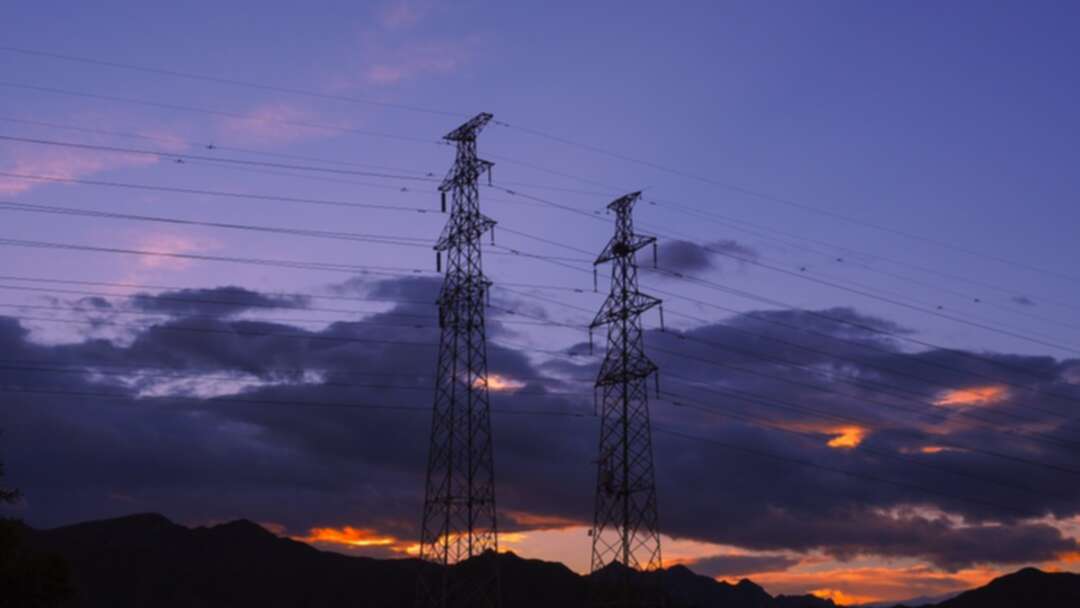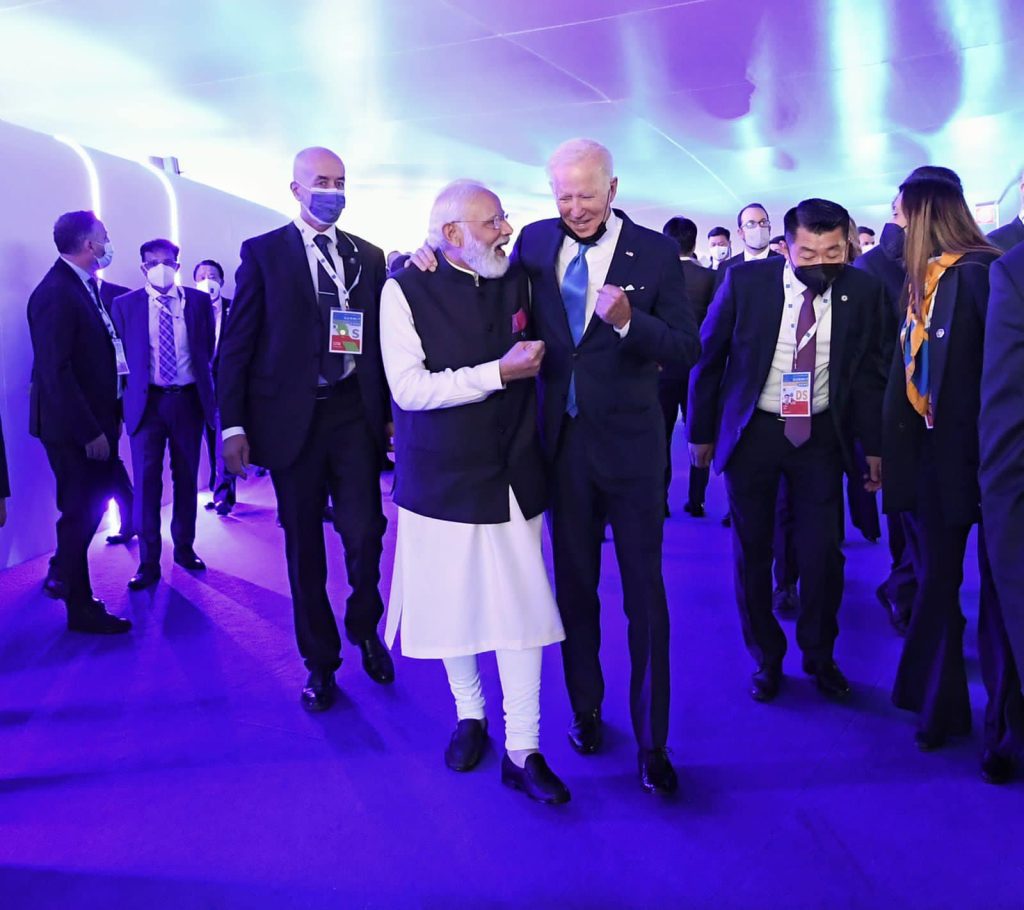-
Britain and India announce plan to improve connections between world's electricity power grids

The NDTV reported according to Reuters, Britain and India launched a plan on Tuesday to improve connections between the world's electricity power grids to help accelerate the world's transition to greener energy.
Launched at the COP26 climate talks in Scotland, the plan, dubbed the "Green Grids Initiative - One Sun One World One Grid", was backed by more than 80 countries, the British government said in a statement.
The initiative aims to make renewable energy the most affordable and reliable option for all countries by 2030 and was an important contribution to the world's goal of capping global warming at 1.5 degrees Celsius above pre-industrial norms.
Linking the grids would allow parts of the world with excess renewable power to send it to areas with deficits. For instance, countries where the sun has set could draw power from others still able to generate solar electricity.
Prime Minister Narendra Modi, said in a statement: "If the world has to move to a clean and green future, these interconnected transnational grids are going to be critical solutions."

The plan forms a key part of a broader plan to speed up the roll out of affordable 'green' technology, covering more than 70 per cent of the global economy and the 'Breakthrough Agenda'.
Read more: Facebook announces it will end use of facial recognition software
Announcing the first five goals of the plan, dubbed the 'Glasgow Breakthroughs', British Prime Minister Boris Johnson flagged high-level targets to push clean power, zero emissions autos, near-zero emission steel, low-carbon hydrogen and climate-resilient agriculture.
"By making clean technology the most affordable, accessible and attractive choice, the default go-to in what are currently the most polluting sectors, we can cut emissions right around the world," Johnson said.
US independent energy expert Matthew Wald said the plan underscored how renewable energy sources need more transmission lines since they must often be built far from cities, unlike coal or gas-fired plants whose fuel can be shipped in.
But Wald said planners in various countries - including the former Soviet Union - have long dreamed of cheap transmission across time zones with limited progress. Although powerline technology has improved in recent years, Wald and others said the plan would require spending large sums.
Kartikeya Singh, senior associate at Washington-based Center for Strategic and International Studies said: "We're talking about transmission networks that will need to be undersea. They will need to cross mountain ranges. They'll need to cross deserts."
The official announcement of the trans-national grid plan did not include cost figures or funding details.
Read more: UK’s longest lasting snow patch disappears for ‘eighth time in 300 years’
On Monday, PM Modi had said India would reach net-zero carbon emissions by 2070, two decades later than scientists say is needed. Although seen as sceptical of efforts to slow climate change, PM Modi has still attended the conference, while leaders of other major emitters, including China and Russia, have not attended in person.
Julie Gorte, senior vice president for sustainable investing at Impax Asset Management said, the grids plan showed PM Modi willing to move the world's second-most populous nation away from fossil fuels as long as developed countries help.
She said: "Left to their own devices, India is going to build coal plants."
Among other plans to be announced, the Global Energy Alliance for People & Planet was launched with an initial $10 billion from philanthropies and development banks to support the energy transition in the Global South.
The United States and the United Arab Emirates, meanwhile, launched AIM4C, to drive innovation in sustainable agriculture, backed by $4 billion in extra investment.
Source: ndtv
You May Also Like
Popular Posts
Caricature
BENEFIT Sponsors BuildHer...
- April 23, 2025
BENEFIT, the Kingdom’s innovator and leading company in Fintech and electronic financial transactions service, has sponsored the BuildHer CityHack 2025 Hackathon, a two-day event spearheaded by the College of Engineering and Technology at the Royal University for Women (RUW).
Aimed at secondary school students, the event brought together a distinguished group of academic professionals and technology experts to mentor and inspire young participants.
More than 100 high school students from across the Kingdom of Bahrain took part in the hackathon, which featured an intensive programme of training workshops and hands-on sessions. These activities were tailored to enhance participants’ critical thinking, collaborative problem-solving, and team-building capabilities, while also encouraging the development of practical and sustainable solutions to contemporary challenges using modern technological tools.
BENEFIT’s Chief Executive Mr. Abdulwahed AlJanahi, commented: “Our support for this educational hackathon reflects our long-term strategic vision to nurture the talents of emerging national youth and empower the next generation of accomplished female leaders in technology. By fostering creativity and innovation, we aim to contribute meaningfully to Bahrain’s comprehensive development goals and align with the aspirations outlined in the Kingdom’s Vision 2030—an ambition in which BENEFIT plays a central role.”
Professor Riyadh Yousif Hamzah, President of the Royal University for Women, commented: “This initiative reflects our commitment to advancing women in STEM fields. We're cultivating a generation of creative, solution-driven female leaders who will drive national development. Our partnership with BENEFIT exemplifies the powerful synergy between academia and private sector in supporting educational innovation.”
Hanan Abdulla Hasan, Senior Manager, PR & Communication at BENEFIT, said: “We are honoured to collaborate with RUW in supporting this remarkable technology-focused event. It highlights our commitment to social responsibility, and our ongoing efforts to enhance the digital and innovation capabilities of young Bahraini women and foster their ability to harness technological tools in the service of a smarter, more sustainable future.”
For his part, Dr. Humam ElAgha, Acting Dean of the College of Engineering and Technology at the University, said: “BuildHer CityHack 2025 embodies our hands-on approach to education. By tackling real-world problems through creative thinking and sustainable solutions, we're preparing women to thrive in the knowledge economy – a cornerstone of the University's vision.”
opinion
Report
ads
Newsletter
Subscribe to our mailing list to get the new updates!






















